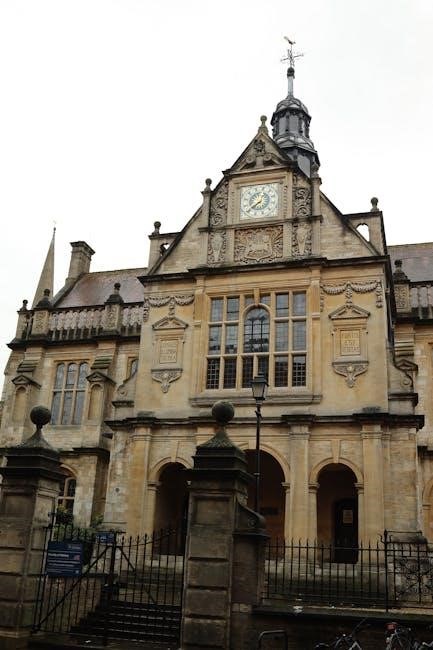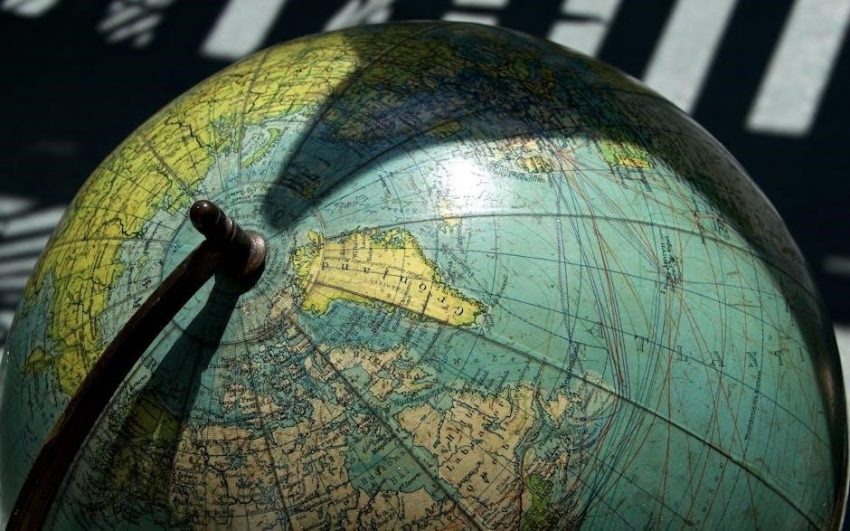Unit 5 explores global history from 1900 to the present, focusing on transformative events, ideologies, and cultural shifts that shaped the modern world.
Key themes include globalization, technological advancements, and the rise of new political ideologies, offering a comprehensive understanding of the 20th and 21st centuries.
1.1 Overview of the Time Period (1900-Present)
The period from 1900 to the present has been marked by profound global transformations, shaping modern society, politics, and culture. The 20th century witnessed two devastating world wars, the rise and fall of totalitarian regimes, and the Cold War, which redefined international relations. Decolonization reshaped the global map, granting independence to numerous nations. The 21st century has seen rapid globalization, technological advancements, and the rise of new economic powers. These events have been intertwined with social movements, environmental challenges, and shifts in cultural norms, creating a complex and interconnected world. Understanding this era is crucial for grasping the roots of contemporary global issues and opportunities.
Key historical milestones include the Great Depression, the civil rights movement, and the digital revolution. These events underscore the dynamic and often tumultuous nature of the modern age, highlighting humanity’s capacity for progress and conflict. The period from 1900 to the present remains a cornerstone of AP World History, offering insights into how global forces have shaped human experiences.
1.2 Key Themes and Concepts
Unit 5 emphasizes several key themes that define the modern era, including globalization, technological innovation, and the rise of new political ideologies. These themes are intertwined with cultural shifts, economic transformations, and the impact of global conflict. A central focus is the interconnectedness of the world, as nations and societies have become increasingly linked through trade, communication, and migration. Additionally, the unit highlights the tension between unity and division, as global cooperation contrasts with nationalism and identity-based movements. Understanding these themes provides a framework for analyzing the complexities of the 20th and 21st centuries, from the fallout of World Wars to the digital revolution.
- Globalization and its economic and cultural impacts.
- Technological advancements and their societal effects.
- Rise of ideologies like communism, fascism, and liberalism.
- Decolonization and its global repercussions.
These concepts are essential for understanding the modern world’s complexities and how historical events have shaped contemporary issues.

Global Conflict
World Wars I and II reshaped global politics, economies, and societies, driven by militarism, alliances, and ideological tensions, leading to unprecedented devastation and geopolitical shifts.
- Militarism and imperialism fueled global tensions.
- Alliances and nationalist ideologies escalated conflicts.
The interwar period saw the rise of fascism, setting the stage for further instability and global conflict, profoundly impacting the modern world order.
2.1 Causes and Consequences of World War I and II
World War I (1914–1918) was sparked by militarism, alliances, imperialism, and nationalism, while World War II (1939–1945) arose from fascist aggression and appeasement policies.
The consequences were profound: millions of casualties, economic devastation, and the redrawing of global power structures. The Treaty of Versailles after WWI sowed seeds for WWII.
- WWI led to the collapse of empires and the rise of new nations.
- WWII resulted in the emergence of the U.S. and USSR as superpowers.
- Both wars spurred technological advancements and social change.
The global community faced unprecedented challenges, leading to the formation of international organizations like the United Nations to prevent future conflicts.
2.2 The Interwar Period: Rise of Fascism and Nationalism
The interwar period (1918–1939) saw the rise of fascism and nationalism, driven by economic instability, political extremism, and the aftermath of World War I.
Fascist leaders like Mussolini in Italy and Hitler in Germany exploited post-war resentment, promising national rejuvenation and authoritarian order. Nationalism surged globally, with countries prioritizing self-interest over international cooperation.
- Economic crises, such as hyperinflation in Germany, fueled radical ideologies.
- Fascist regimes suppressed dissent and promoted militarism.
- Nationalist tensions escalated, leading to territorial disputes and aggressive expansion.
This era laid the groundwork for World War II, as authoritarian regimes and nationalist ambitions destabilized global relations.

The Cold War
The Cold War (1947–1991) was a geopolitical and ideological conflict between the U.S. and the Soviet Union, marked by proxy wars, arms races, and political tensions.
3.1 Origins and Ideological Foundations
The Cold War originated from post-World War II tensions between the United States and the Soviet Union, rooted in ideological differences: capitalism versus communism.
The U.S. sought global stability through democratic institutions and free markets, while the Soviet Union aimed to expand socialism and secure its sphere of influence.
The Yalta and Potsdam Conferences laid the groundwork for power struggles, with the division of Europe into Western and Eastern blocs symbolizing the ideological divide.
The Truman Doctrine and the Marshall Plan exemplified U.S. efforts to contain Soviet expansion, while the USSR countered with its own alliances and political strategies.
This ideological clash set the stage for decades of proxy wars, propaganda, and a nuclear arms race, shaping global politics and economies.
3.2 Key Events and Impact on the Global Stage
The Cold War was marked by pivotal events that reshaped global geopolitics. The Berlin Blockade and Airlift (1948–1949) showcased the ideological divide, while the Korean War (1950–1953) and Vietnam War (1955–1975) exemplified proxy conflicts.
The Cuban Missile Crisis (1962) brought the world to the brink of nuclear war, highlighting the dangers of superpower rivalry. Meanwhile, the Space Race symbolized technological competition, with the U.S. achieving landmark successes like the Apollo 11 moon landing.
These events influenced global alliances, with the rise of NATO and the Warsaw Pact, and spurred decolonization, as nations sought independence from colonial powers. The Cold War also fueled the Non-Aligned Movement, as countries attempted to avoid direct involvement in the conflict.
Ultimately, the collapse of the Soviet Union in 1991 marked the end of the Cold War, leaving the United States as the world’s sole superpower and reshaping the global political landscape.

Economic Transformations
The 20th century saw significant economic shifts, driven by globalization and technological advancements. International institutions like the IMF and World Bank emerged, shaping global trade and finance.
4.1 Globalization and Its Effects
Globalization, a key driver of economic change, refers to the increasing interconnectedness of the world through trade, technology, and cultural exchange. It accelerated in the late 19th and 20th centuries due to advancements in transportation and communication, such as steamships, airplanes, and the internet.
Economically, globalization expanded international trade, fostering growth and interdependence among nations. However, it also led to inequality, as wealth and opportunities were unevenly distributed. Multinational corporations emerged, influencing economies worldwide. Cultural globalization merged traditions, creating a more homogenized global culture, while also sparking debates over cultural identity and autonomy. Environmental concerns arose as industrialization and global trade intensified resource exploitation and pollution. Overall, globalization reshaped the modern world, offering both opportunities and challenges for societies globally.
4.2 Role of International Economic Institutions
International economic institutions, such as the International Monetary Fund (IMF), World Bank, and World Trade Organization (WTO), play a crucial role in shaping global economic policies and fostering cooperation.
These institutions aim to stabilize economies, promote development, and facilitate international trade. The IMF provides financial assistance to countries facing economic crises, while the World Bank offers loans for development projects. The WTO establishes rules for global trade, resolving disputes and promoting fair practices. Additionally, organizations like the G20 address global economic challenges collectively. While these institutions have supported economic growth and poverty reduction, critics argue they often favor developed nations and impose stringent conditions. Their influence remains significant in addressing contemporary issues like climate change and inequality, shaping the global economy’s future.

Cultural and Social Shifts
Major 20th-century movements like civil rights, feminism, and environmentalism transformed societies. Technological advancements reshaped daily life, while globalization influenced cultural exchange and identity formation worldwide.
5.1 Major Social Movements of the 20th Century
The 20th century witnessed transformative social movements that reshaped societies globally. The civil rights movement in the United States fought against racial segregation, while feminist movements advocated for gender equality. Environmentalism emerged as a response to industrialization, promoting sustainability. Anti-colonial movements led to independence for many nations, challenging imperial dominance. Additionally, the LGBTQ+ rights movement gained momentum, pushing for inclusivity and legal recognition. These movements often intersected with broader political and economic changes, reflecting the complexities of globalization and technological advancements. They not only addressed specific injustices but also fostered dialogue about human rights and social justice, leaving a lasting legacy on modern society.
5.2 Technological Advances and Their Impacts
The 20th century saw groundbreaking technological advancements that profoundly impacted global societies. The development of the internet and computing revolutionized communication and information sharing. Space exploration, exemplified by the Moon landing, showcased human ingenuity and sparked international collaboration. Medical advancements, such as vaccines and genetic research, significantly improved global health and life expectancy. Meanwhile, industrial and agricultural technologies increased productivity, enabling economic growth. However, these advancements also raised ethical concerns, such as digital divides and cybersecurity threats. The rapid pace of innovation continues to shape modern life, offering solutions to global challenges while introducing new complexities for societies worldwide.

